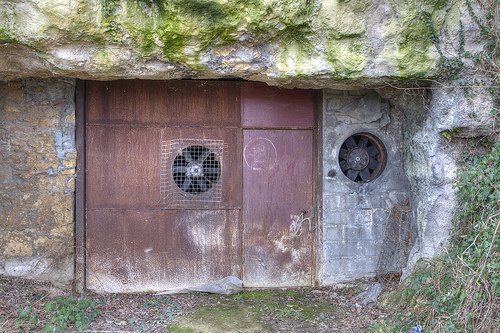Hiding under the desk


What could for instance happen instead is the following:
- Summer 2018: Talks break down, possibly because of the status of Northern Ireland.
- September 2018: Talks restart, but break down again soon afterwards because of Theresa May’s red lines.
- October 2018: The EU say that this is the last chance to ratify any agreement, so they give the UK an agreement to sign, but that doesn’t happen. This means there will be a cliff-edge Brexit in March 2019 without any transition agreement. Companies and individuals start leaving in great numbers, and the Pound Sterling falls like a stone.
- November 2018: A general election gets called due to pro-EU Tories expressing no confidence in Theresa May.
- December 2018: General election: Labour win.
- January 2019: Labour try to resume negotiations with the EU, but they say that there is no time left – not even for signing the document they produced in October. A lot of MPs say that Brexit must get cancelled, but Corbyn won’t do it. Parliament votes for a No Confidence motion.
- February 2019: General election. An impromptu Remain-in-the-EU coalition of Remainers from many parties wins.
- March 2019: The new government tries to cancel Article 50 in order to Remain. Will the EU accept it?
Of course this isn’t very likely – it’s actually very unlikely that there would be two general elections so close together, and for Remainer MPs to form an electoral alliance so quickly is almost impossible.
My point is that there might never be a point when Scotland can calmly assess the situation and choose the best way forward. There will always be uncertainties – there will always be hopes that it’ll all end well and worries that it’ll be a total disaster.
It reminds me of the Danish involvement in the Yugoslav wars: The Danish army had at that point not seen action for 130 years (Denmark was neutral in WWI and didn’t resist when Germany invaded in WWII). As a result, some Danish officers turned out to be unable to do anything while being shot at – they basically hid under their tables when their plans turned out not to work. Of course, they quickly got replaced by people who were good at thinking on their feet in a battle.
Brexit is almost like a non-military battle: There’s a lack of reliable information, a lot of misleading stories, and yet time is short, and it’s important to act soon.
If we wait till everything is clear, we’ll put ourselves in the worst position possible – we’ll effectively have been hiding under our desk while others were waging a war. That will not be a good starting point for a campaign.
Hopefully the Brexit power grab – and the fact that Labour and the Lib Dems now seem to agree that it’s unacceptable – will provide an opportunity for doing something soon.
As Ruth Wishart recently wrote: “Carpe diem, whilst we still can.”
It dDoesn’t matter – public opinion hasn’t swung in favour of independence, and a campaign, in an environment of uncertainty as to what will be the outcome of voting either way, is unlikely to swing it. If we see a change in public opinion then a referendum might start to make sense.
“there might never be a point when Scotland can calmly assess the situation and choose the best way forward”
– there might never be a time when 2+2=5, so we just need to take the chance when we can, to add 2+2 and see if it comes to 5.